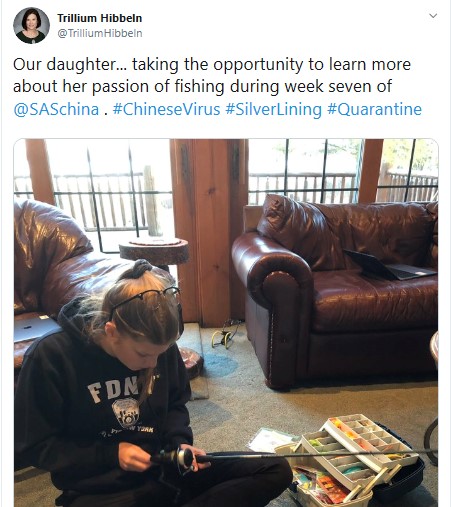Will education ever be the same again?
As we write, young people all over the world are engaged in learning in online communities from the comfort (and quarantine) of their own homes.
Right now, seminars on literature and philosophy are being conducted between groups of students across multiple continents. Teachers are recording feedback for their students as they annotate digital documents. Music lessons are taking place creating networks of singers across the world (persevering wonderfully in spite the connection delay). Virtual sports days are being led by passionate PE teachers, getting children to stay active while stuck in their homes. Videos are being shared by children as they inquire into their surroundings or local community.
Much of this is nothing new for our children. For GenZs, it is second nature to hop onto YouTube or question their closest AI friend in response to their desire to learn something.
Global disruption
But, to many schools all over the globe this means of providing education is very new, and sudden in its necessity. It is also causing a lot of anxiety and disruption for teachers, school leaders and school networks, whose care and commitment leads to feelings of guilt for not doing enough to support their students in these challenging times.
After decades of attempts by active ‘disruptors’ of the education system, Coronavirus COVID19 has swept in and caused an unprecedented and widespread disruption of business-as-usual for schools across Asia, Middle East and Europe, with more to come.
The ripples have been immediate and significant.
Tech giants like Microsoft, Google and Cisco have opened up previously pay-walled features in their online systems. And this is then rippling out to other Edtech providers.
Policy-makers and local authorities have suddenly mandated schools to continue providing e-Learning that some school leaders have been asking for permission for for a long time. As a colleague working in an international school in the Middle East said recently with a satisfied smile, “We’ve been asking permission to do these things for the last two years, and now they want us to implement it in three days!”
Lasting traces in the system
Home-school advocates – who were forever on the margins of the education conversation – are now trailblazers and sending out reassuring noises that another way is possible! As one teacher tweeted recently, the years that she was home-schooled, with more unstructured play, were the “best years of my life”.
Children’s passions and interests have suddenly been given more space (by teachers and parents) in the routines of each day. Academic work is being balanced out by the chance to spend more time on their own fascinations and hobbies.
All of these amazing developments that we are now witnessing at full speed will certainly leave traces in a system that showed itself very reluctant to substantial change during the past decades.
What is interesting to observe and document closely are the nature and legacy of these impacts:
What implications will these changes have for the role of the teacher? For the way teachers plan to engage students in learning in more meaningful ways? For the way we conduct assessment? For the way teachers need to be trained? For the way teachers need to be guided/led along the way?
How might the role of self-leadership come to be given more emphasis, in the way that it supports independent learning at home and in virtual spaces. We have great data from MOOCs that despite very positive, self-motivated intentions, people rarely complete full courses.
How do we continue to add in nudges and supports, scaffolds and coaching to ensure that students develop in their abilities to self-organise and self-motivate? This coming after a lifetime in a school system whose rules, boundaries and disciplinary systems too often promote obedience and passivity over creativity and drive.
“By the time they get to be adults, most kids have …become frightened of being wrong. And we run our companies like this, by the way. We stigmatize mistakes. And we’re now running national education systems where mistakes are the worst thing you can make. And the result is that we are educating people out of their creative capacities.” Sir Ken Robinson
In a time of social (and educational) distancing, how will we respond to the necessity to create more opportunities for emotional and human connection? Our very real human needs for connection and intimacy will persist and will require our collective creativity in order to meet them. We will say more on this in a future post.
Agile systems offer learning
Sure enough, many of these things have been going on at the margins for years. Education provision always had to be agile, and adapt to the needs of families in post-conflict and post-disaster zones and slums. Or in single projects, like the Kakuma project in order to serve different needs of time and space, unmet by formal education. Many of these school projects have been named ‘schools of the future’ by the World Economic Forum (WEF) but in fact are very much schools of the present.
What we see now is experimentation on a huge scale. So perhaps we can take this disruption as an opportunity to learn together about how to build more connection, meaning and agility into the education system of our future… starting now.



A lot of developments taking place in the field of teaching-learning procedures through online and offline too…… the discussion is very relevant in the wide spread crisis period across the world. We are not too far from this newly implemented systems but one question , can this education system be implemented in rural areas where the teachers , students are not technically updated and the infrastructure may not suit it….. I may seek the provisions of introducing such steps in the underprivileged areas. In some others places neither the concept of global education nor the wholesome education being its progress. The challenges such as self consciousness , financial crisis are blockage of such contributions made by the teachers and leaders. I find it worth reading ❤ such a fantastic thought , must be introduced rapidly
Thank you Sunit. You raise some very important points. I love your optimism that we are not far from this shift in the system. There are a lot of people pulling together in incredible ways in the face of the challenge posed by COVID-19. The fascinating phase will be to see how many of the positive legacies we hold onto after we have defeated the virus.
The digital divide is also a very real challenge geographically and economically. But what has been so clear in the response to the Coronavirus is that, with sufficient necessity or will, huge progress can be made in no time at all – such as the way that the big-tech firms have opened up access to their usually pay-walled products.
To save the planet and ensure the safety of our Mother Nature as well as planet earth..we must overcome the stereotype boundaries of present education system . The incredibility of every creative enthusiastic young mind has to be flourished by all means guided by the leaders and must be encouraged to set their own foot-steps towards a global education system devoid of any stagnation or boundaries like school, college or universities.
Thank you Tania. You are so right that an urgent action for us has to be to address the impact that we are having on our precious biosphere. Enabling an educational system to evolve that is truly regenerative to our planet and our young people’s unique attributes is definitely our priority!
I find it to be an extremely valuable page triggering the crave of every individual mind to contribute their best to the world by digging out and watering their infinite creative thoughts and shaping their originality for the benevolence of mankind. Our contribution is only possible when we shall attempt the infinite limitations yet to be experimented and executed without confining ourselves with the stereotype perceptions. Learning is a journey to be destined to ensure the grooming and completion of a well- shaped personality ready to face n overcome any challenge to uphold the beautiful environment of our planet.